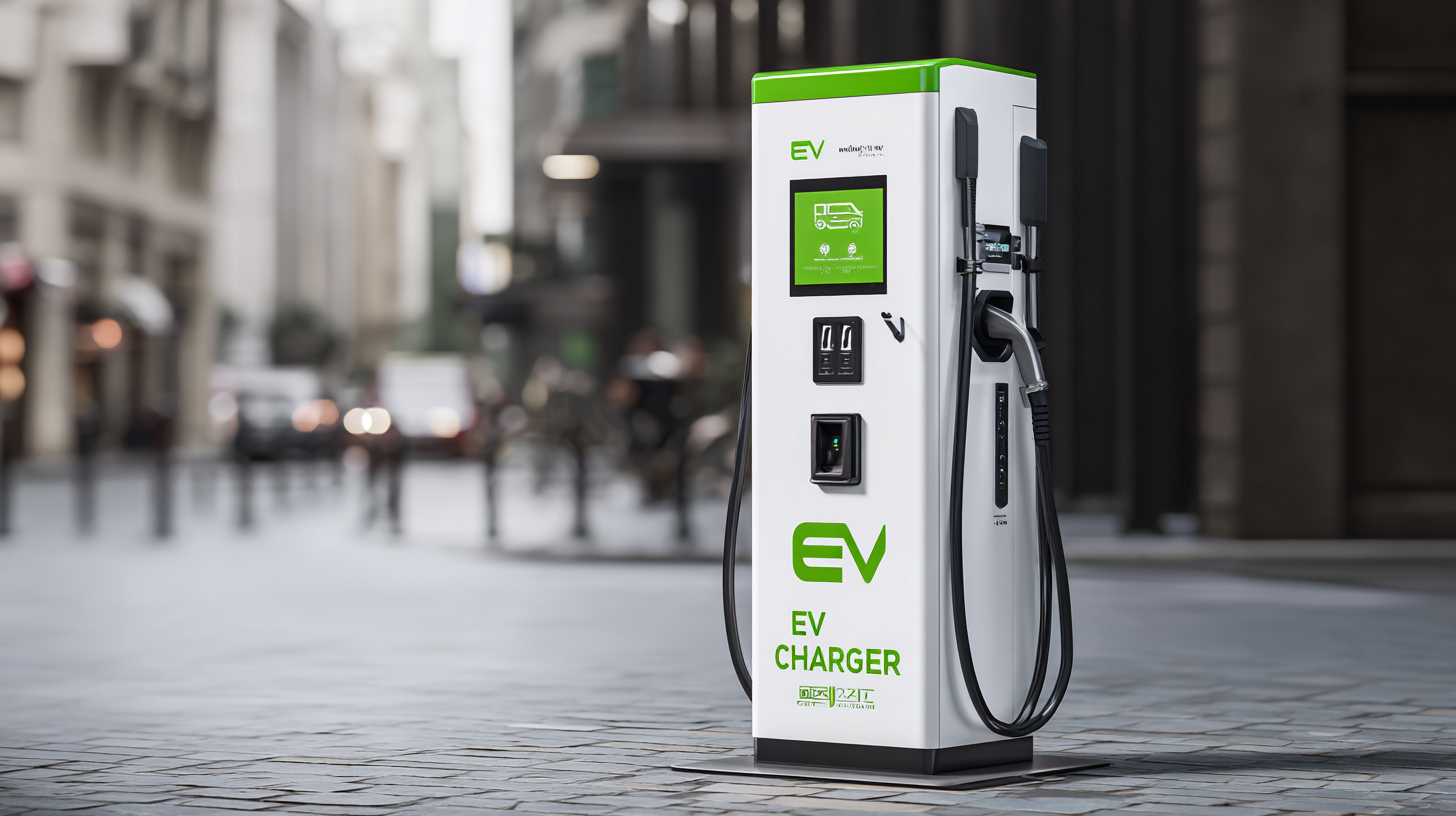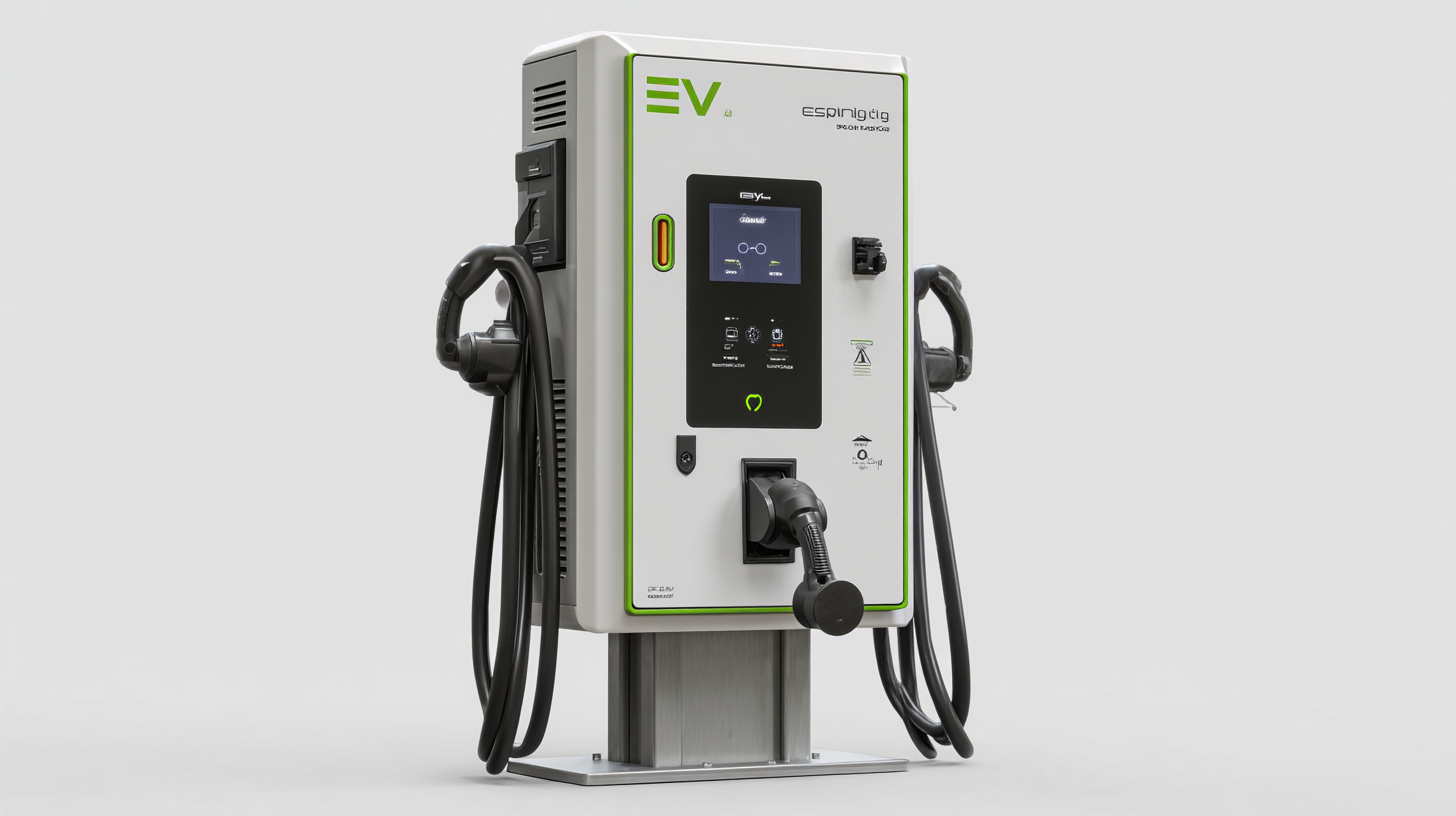As the demand for electric vehicles (EVs) continues to surge, businesses are increasingly recognizing the importance of installing an efficient and reliable EV Charger 240v to meet the needs of their customers and employees.
According to a report by the International Energy Agency, the number of electric cars on the road surpassed 10 million in 2020, with projections indicating that this figure could reach 145 million by 2030.
This rapid growth highlights the necessity for businesses to adapt to the evolving automotive landscape by providing adequate charging infrastructure.
Investing in a high-quality EV Charger 240v not only enhances customer experience and employee satisfaction but also aligns with sustainability goals, as businesses strive to reduce their carbon footprint.
In this blog, we will explore the benefits of selecting the right type of EV charger for your organization and navigating the challenges associated with this crucial decision.

When it comes to selecting a 240V EV charger for your business, it's essential to understand the different types available in the market. There are Level 2 chargers, which are designed to provide a faster charging solution than standard household outlets. These chargers can significantly reduce downtime for electric vehicles, making them ideal for commercial settings where efficiency is crucial.
Additionally, you might consider smart chargers equipped with advanced features. These devices allow for remote monitoring and scheduling, enabling better energy management and flexibility based on your business's peak hours. This is particularly useful for companies looking to optimize their operational costs while accommodating various electric vehicle models.
Tips: When choosing a charger, ensure it meets your specific power requirements while considering future scalability, as electric vehicle adoption continues to grow. Also, assess the infrastructure of your location to determine if any modifications are needed to support the installation. Lastly, evaluate the warranty and service options provided by the manufacturer to safeguard your investment.
When selecting an EV charger for your business, it is crucial to consider a variety of factors that can significantly impact not just the convenience for electric vehicle (EV) users but also the economic benefits for your business. A recent study highlighted that EV charging stations can lead to increased spending at nearby businesses, demonstrating a clear link between charging infrastructure and local economic vitality. By installing charging stations, businesses can attract more customers who may linger longer, boosting sales and visibility.
Another vital factor is the reliability of charging stations. Research indicates that EV chargers in the U.S. show a 78% reliability rate, which could influence user satisfaction and the frequency of use. Investing in chargers with higher reliability ratings not only enhances user experience but also reinforces your establishment’s commitment to sustainable practices. Furthermore, understanding the costs associated with installation is paramount. Rising expenses linked to deploying EV chargers may deter some businesses, but the long-term returns from increased foot traffic and customer loyalty often outweigh initial investments. As the electric vehicle market continues to grow, ensuring that your business is equipped with the right EV charging solutions can position you advantageously in the marketplace.
 When it comes to integrating 240V EV chargers into your business operations, understanding installation requirements and associated costs is paramount. According to the Electric Vehicle Council's 2022 report, businesses can expect the cost of installing a Level 2 (240V) charger to range between $2,500 to $7,500, depending on site conditions and specific charging needs. Factors such as electrical infrastructure, location accessibility, and potential need for upgrades or permits can significantly impact overall expenses.
When it comes to integrating 240V EV chargers into your business operations, understanding installation requirements and associated costs is paramount. According to the Electric Vehicle Council's 2022 report, businesses can expect the cost of installing a Level 2 (240V) charger to range between $2,500 to $7,500, depending on site conditions and specific charging needs. Factors such as electrical infrastructure, location accessibility, and potential need for upgrades or permits can significantly impact overall expenses.
Evaluating site requirements is equally crucial. The U.S. Department of Energy highlights that installation should ideally be near existing electrical systems to minimize costly modifications. Additionally, businesses may consider positioning chargers in high-traffic areas to maximize usage, as studies indicate that strategic placement can increase user adoption by over 30%. With proper planning and investment, businesses can not only improve their EV infrastructure but also enhance customer satisfaction and sustainability credentials in a rapidly evolving market.
When selecting the best 240V EV charger for your business, two critical factors must be considered: charging speed and efficiency. Recent studies indicate that optimizing charging schedules can significantly improve operational efficiency within distribution networks. For instance, implementing advanced algorithms can enhance the management of multiple EV charging and discharging sessions. Such strategies are not only beneficial in maximizing charging speed, but they also contribute to the overall sustainability of business operations by reducing energy waste.
The increasing adoption of electric vehicles necessitates fast-charging stations that align with environmental sustainability goals. A comprehensive review highlights the importance of deploying these stations effectively. Research shows that companies embracing efficient eMobility strategies often experience lower operational costs and improved profitability. For example, integrating solar photovoltaic technologies with EV charging can result in substantial energy savings while also promoting a greener business profile. As the logistics industry increasingly incorporates electric vehicles into its fleet, the optimization of charging infrastructure becomes paramount to harnessing the full potential of these sustainable alternatives.
When contemplating the installation of a 240v EV charger for your business, exploring available incentives and funding options can significantly ease the financial burden. Many government programs and local utility companies offer grants, rebates, or tax credits aimed at promoting electric vehicle infrastructure. By tapping into these resources, businesses can often offset a significant portion of their initial investment, making it easier to implement environmentally friendly practices.
Additionally, various financing options are available that can help manage upfront costs. Leasing arrangements or power purchase agreements allow businesses to install EV charging stations with little or no initial capital investment. Furthermore, collaborating with EV charger vendors can lead to tailored solutions that suit your budgetary constraints. By understanding and leveraging these incentives and funding opportunities, businesses not only contribute to a sustainable future but also enhance their market competitiveness by catering to the growing demand for electric vehicle charging solutions.









